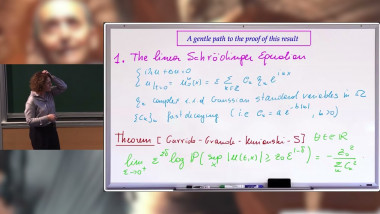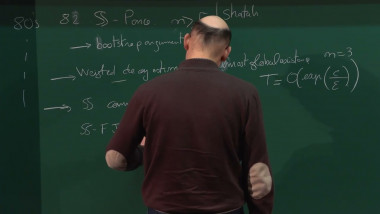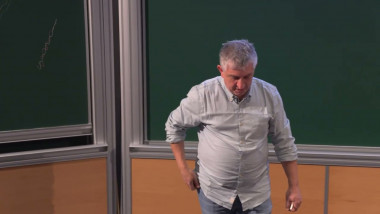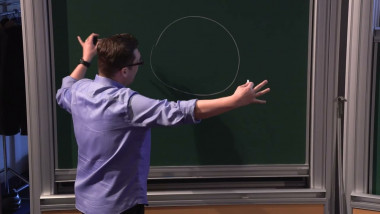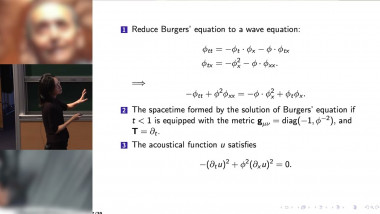Apparaît dans la collection : Advances in Nonlinear Analysis and Nonlinear Waves, a conference in honor of Frank Merle
Area-minimizing integral currents are a natural generalization of area-minimizing oriented surfaces. The concept was pioneered by De Giorgi for hypersurfaces of the Euclidean space, and extended by Federer and Fleming to any codimension and general Riemannian ambients. Celebrated examples of singular $7$-dimensional minimizers in $\mathbb{R}^8$ and of singular $2$-dimensional minimizers in $\mathbb{R}^4$ are known since long. Moreover, a theorem which summarizes the work of several mathematicians in the 60es and 70es (De Giorgi, Fleming, Almgren, Simons, and Federer) and a celebrated work by Almgren in the 80es give dimension bounds for the singular set which match the one of the examples, in codimension 1 and in general codimension respectively. In codimension, higher than 1 a recent result of Liu shows that the singular set can in fact be a fractal of any Hausdorff dimension $\alpha \leq m -2$. On the other hand, it seems likely that it is an $(m -2)$-rectifiable set, i.e. that it can be covered by countably many $C^1$ submanifolds leaving aside a set of zero $m-2$-dimensional Hausdorff measure. This conjecture is the counterpart of a celebrated work of Leon Simon in the nineties for the hypersurface case. In this talk I will report on progress towards its proof, based on recent joint works with Anna Skorobogatova and Paul Minter.
